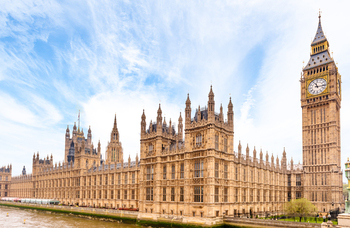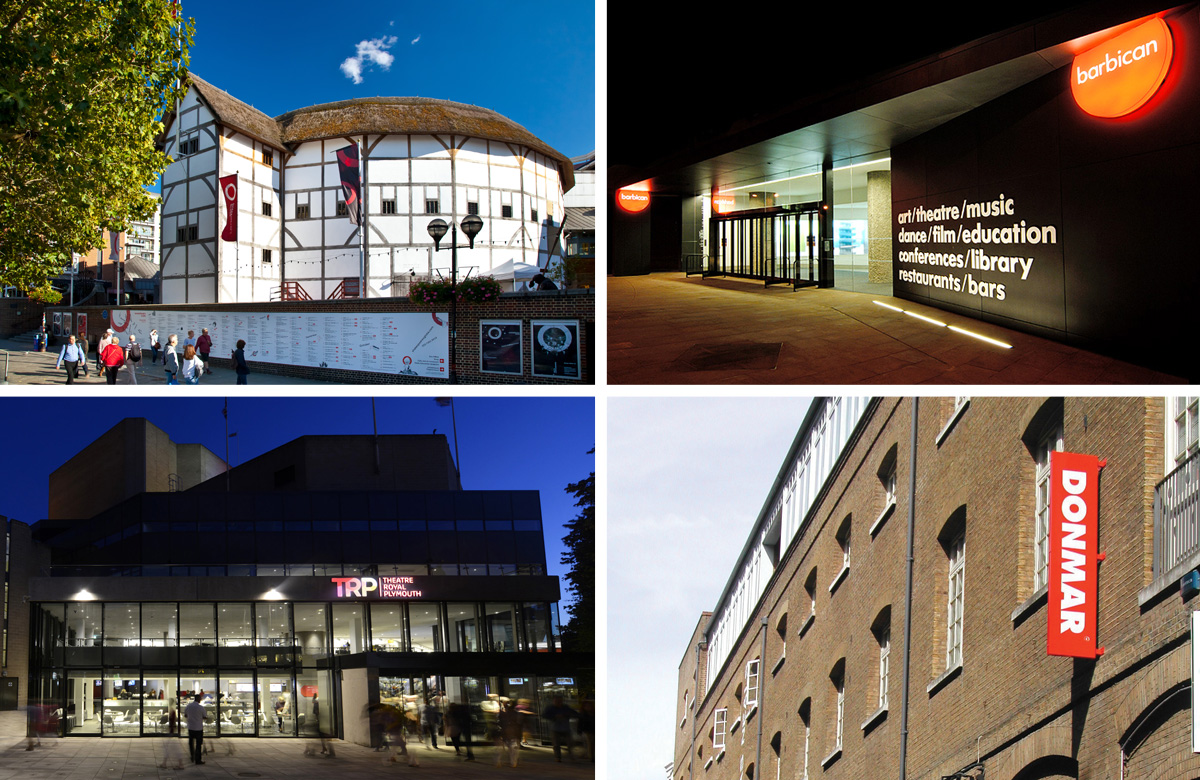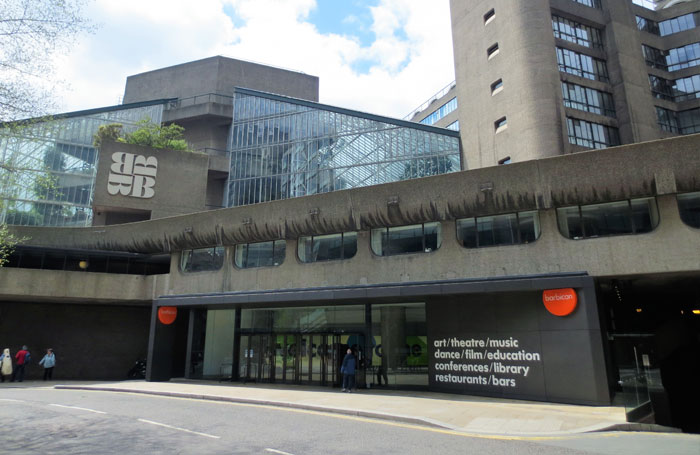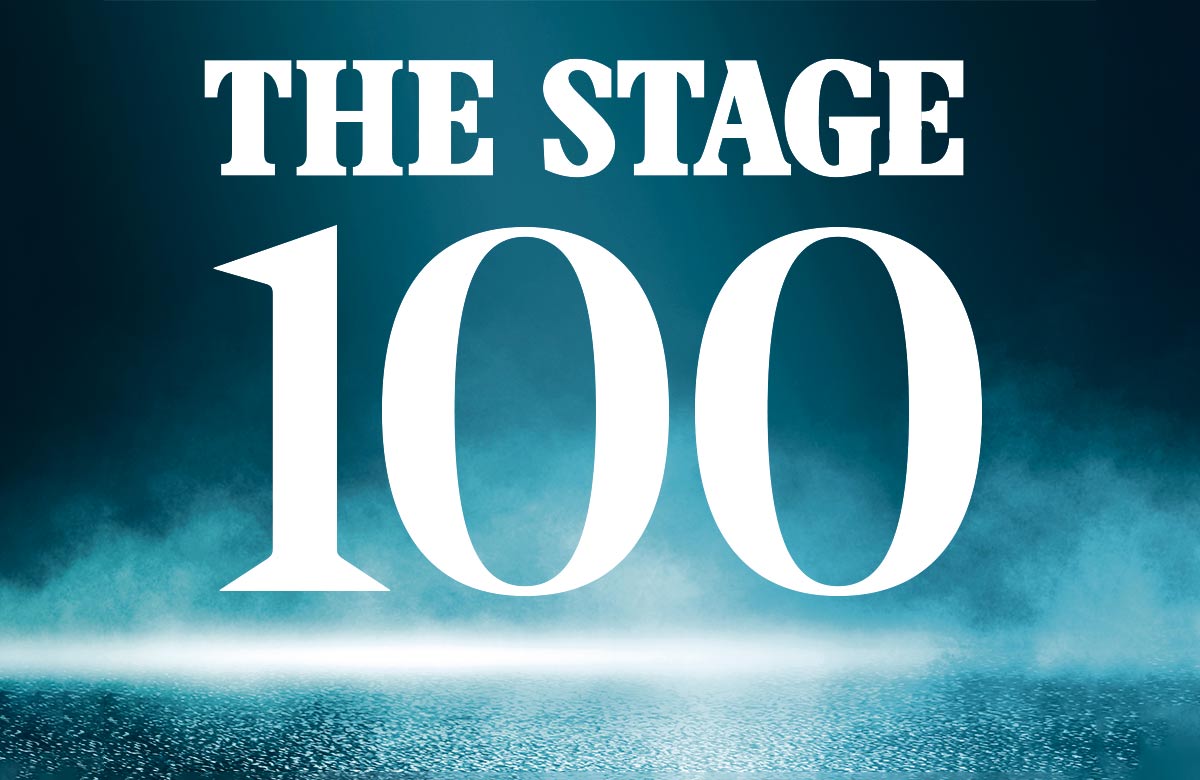
‘We are critically vulnerable and facing closure’ – theatres give evidence to DCMS inquiry
Matthew Hemley and Georgia Snow look at theatre’s responses to a Department for Digital, Culture, Media and Sport committee inquiry examining the immediate and long-term impacts of Covid-19 on the sector. The inquiry is ongoing and is accepting submissions until June 17
Shakespeare’s Globe
Shakespeare’s Globe has issued one of the starkest warnings of any theatre organisation responding to the inquiry so far and said it will face closure without government support as a result of the pandemic. The not-for-profit theatre said the next few months will pose its greatest threat since opening in 1997 and used its submission to make the case for emergency funding.
95% of its income is generated through ticket sales and other commercial streams, meaning "a model that has contributed to our financial resilience now sees us critically vulnerable and at risk of closure in the wake of Covid-19".
The Globe said it had applied for emergency funding from ACE, but was unsuccessful, and because it is not regularly funded, it has received no emergency money to help weather the crisis.
It said it would need a minimum of £5 million from government to get the organisation back on its feet and would have to significantly reduce its operations if closures continue beyond September.
Looking to the long term, the Globe raised concerns about the impact the pandemic will have on tourism, a major part of its audience, the affordability of learning and engagement work and the risks faced by the over-70s, who make up the majority of the Globe’s 570 front-of-house volunteers.
Read the news story here
Really Useful Group
Andrew Lloyd Webber’s production company said the pandemic is having a "dramatic effect" on its business, with 27 of 31 shows and tours licensed by RUG slated for 2020, across 15 countries, forced to be cancelled or postponed.
Each week, this is resulting in box-office losses of £6.15 million, which translates to a £240,000 loss in weekly earnings for the company. Across a year, this would be a £12.5 million drop in income for RUG.
It warned the industry will "soon be in a position where significant government support is required for its survival", and criticised a lack of clarity around the lockdown and its timelines. Its submission pointed to South Korea’s approach in theatres as a valuable case study.
Within the UK commercial sector, RUG said the outbreak will put future investment in theatre at risk, which will likely result in fewer projects making it to the stage, as well as an impact on new and innovative shows. These could get shelved in favour of "more established and commercially proven" productions RUG said, while also highlighting a risk to the overall financial viability of theatre shows.
This "may result in the theatres having to ensure increased dark periods without any programming and corresponding revenue. This in turn would result in a decrease in local employment (particularly in the case of regional theatres) and in some cases the possibility of theatres closing permanently or being sold for alternative uses", RUG said.
‘A model that has contributed to our financial resilience now sees us critically vulnerable’
Edinburgh Festival Fringe Society
The society said the fringe’s cancellation in 2020 had created a revenue gap of £1.5 million for the organisation and warned of the consequences of not running this year’s event on the 300 plus venues, which it said would lead to a collective deficit of £21 million.
The society said a catastrophic year, brought on by Covid-19, could lead to the loss of “Edinburgh’s infrastructure as the world’s leading festival city, and the pivotal role the fringe plays for the UK creative industries."
It added: “Unless financial support of £1 million can be secured within this financial year, the society and the fringe itself, the largest non-curated performing arts festival in the world, will face significant costs with existential consequences."
For the ecosystem of independent performers and presenters the potential losses are substantially higher, the society said, and will have a devastating effect on cultural venues and independent artists for years to come.
“Potential ticketing income losses are in excess of £30 million across the fringe and in most cases reflects well over 70% of total income for artists and venues,” it said.
Warning that it is facing insolvency, it said: “It is unconceivable that the UKs most important cultural festival, which attracts such a high social, creative and economic impact is facing a precarious, fragile and uncertain future.”
Donmar Warehouse
London’s Donmar Warehouse said Covid-19 had exposed a "fundamental vulnerability" in its business model, which is reliant on fundraised income and box-office revenues. The 251-seat venue said it had been left without a safety net and warned that due to its size, it would not be able to return to financial health on box-office sales alone.
The theatre said it is now projecting to finish the 2020/21 financial year £1.5 million in deficit, with an immediate reduction in box office, fundraising and other income of £3 million. It has been forced to put the brakes on an "urgent" refurbishment project, costing £9.5 million, in order to survive the crisis, but warned there will be a high likelihood of equipment breaking down in the near future.
It warned redundancies will be widespread if the furlough scheme is not extended until theatres are able to operate at 100% capacity and the company would be less able to take artistic risks or invest in ambitious projects in future.
The Donmar urged ACE and DCMS to "take a longer view" and said the organisations should help theatres create "sustainable, monetisable models", that enable them to pay artists better and "halt the flight to TV/film that we experience at present".
London Theatre Consortium
The LTC, which represents 14 theatres in London including the Almeida, the Royal Court, the Bush, the Unicorn, the Young Vic and the Gate, warned its member organisations cannot operate while people are unable to gather, and that social distancing is not "administratively, practically and certainly not economically" possible.
It highlighted that the majority of theatres will need at least three months notice before they can be operational again, and once open must remain so in order to stay afloat and maintain audience trust.
In a collective statement, the member theatres proposed a "national timeout", in which they, along with their workforces, communities and artists, "are protected until the virus is no longer a public health risk and we can operate under full and free conditions".
As part of this, the job retention scheme must be maintained until that time, they said, adding that ACE’s emergency funds should not "dwindle beyond September", the date until which they cover at present.
"It is in the second half of the financial year that we very quickly fall off a cliff. Beyond this, as organisations that are heavily reliant on fundraising, we anticipate further income challenges as a result of economic downturn," the LTC said, calling for DCMS support in enabling theatre to "be critical to London’s and the nation’s recovery".
Barbican
It is essential the government takes decisive action to ensure the cultural ecosystem is protected at all levels, the Barbican said, arguing that its programme and business model relies on the wider health of the sector.
It said independent and early to mid-career artists and companies, and community organisations, are significantly at risk, particularly due to their historic underfunding, which in turn will have knock-on effects on its own output.
"The loss of local, independent and early-mid career cultural operators and their work will impact on larger, more secure organisations’ abilities to engage wider and more diverse audiences, make and maintain meaningful relationships with their local community and arts networks, support artistic development and diversify their programmes," it said.
The Barbican urged government to give consideration to the long-term implications for the culture sector and said a lack of support for artists that are less financially stable would see a “large part of the sector significantly compromised".
It called for a phased approach to emergency packages once restrictions are eased in order to help stabilise the sector, as well as appealing for more clarification and practical support for the freelance workforce.
Royal Court
The Royal Court warned most theatres will “run dry of cash by September at the latest, many sooner than that”.
Executive director Lucy Davies highlighted how the pandemic had resulted in the theatre’s closure indefinitely with suspension of eight productions and a UK tour.
She also highlighted how four income streams have been choked: ticket income, catering income, commercial income from transferred/touring shows and fundraising income.
She said this amounted to a loss of about £2 million over the five month lockdown/closure period.
The theatre employs 120 people, but the venue has furloughed about 100, with 18 permanent staff remaining. In addition, the venue works with about 370 freelance actors, stage managers, designers and directors every year and more than 100 playwrights, all of whom are losing work.
She said the theatre does not know what the long-term impact will be, but warned “any scenario involves 12 to 18 months of sustained disruption” and a new “low touch” context where the creation of theatre and public gatherings will need to “operate under very different protocols”.
“The 2020/21 financial and artistic year is simply wiped out. In 2021/22 we will be feeling the aftershocks,” she said.
Davies also said the “advice to close theatres was late and unclear”.
"It pushed the decision making on to organisations and divided the sector in opinion and action. It was a very difficult period as audiences dwindled and sales flatlined towards inevitable closure,” she said.
‘It looks increasingly likely that a number of theatres will close permanently’
Zippos
Circus company Zippos founder Martin Burton said the “circus and funfair sector has been completely ignored by any of the chancellor’s schemes” to help financially.
He said there were currently 20 stranded circus artists living at its headquarters in Newbury, West Berkshire, who are "relying on the local food bank to feed themselves as they have no money and no income".
"The circus has been unable to access grants from our local authority because we do not pay business rates. We do not trade from our headquarters; we trade from a big top tent in fields and parks throughout the UK. Money owed to the circus by theatres for work completed is slow to be paid as the theatres are struggling with ticket refunding depleting their own income,” he said.
However, Burton said the circus has a better chance than theatre “to restart quickly once we are allowed to do so”.
“We can quickly put up posters, build up the big-top tent in a prominent park/open space and open. But it costs money to do so. And we won’t have money to reopen, to pay for publicity, insurance, transport, flights to bring foreign artists back to the UK, rent on parks in advance, the VAT and other bills that have been building up while not trading, plus pay for the new requirements of cleansing and sterilising of people and equipment, [which will be] undoubtedly required at a future reopening date. We need grants to give us money to reopen, we need free / reduced rent on parks,” he said.
Theatre Royal Plymouth
Theatre Royal Plymouth said it was facing the possibility of winding up. It earns 91% of its £18/20 million annual turnover from its combined trading activities, with the remaining 9% coming from Arts Council England and local authority funding. Its monthly payroll costs are about £450,000 and 88% of its staff are currently furloughed.
In the mid to long term, it said the impact will be theatres having to remain dark for many months after the ‘lockdown’ restrictions are lifted, due to the absence of productions to present.
“So, although theatre buildings may be free to reopen and their staff will need paying by the theatre company concerned, they will have no productions to stage (whether produced in-house or toured-in) to drive ticket sales and all other vital ancillary income streams,” it said.
It added: “In the absence of all earned income, any continued government job retention scheme or other support, and with reserves exhausted, the company would be obliged to wind up.”
It said this could only be prevented if the job retention scheme were maintained for the theatre sector until venues were able to reopen with productions on their stages.
It also warned that social distancing and only selling 30/50% of available seats is not financially viable for the larger scale venues which rely on 70/80% attendance year-round to cover costs.
“Given the level of fear that has existed around Covid-19, for audiences to be encouraged back to venues at the required levels, well-publicised clear government messaging regarding the safety of the public attending cultural events will be paramount,” it said, adding that the impact on all theatres has ‘obviously been colossal”.
Professional Lighting and Sound Association
The trade body said it was concerned that thousands of businesses could collapse over the next three months.
“A major concern is the long-term outlook for the industry, as it is wholly reliant on organised mass gatherings. This industry cannot operate while restrictions are in place – businesses are looking at a reality in which they will have no income until 2021, even after then it is an unknown,” it warned.
It said 60% of businesses working in the events industry only have liquidity for three months or less.
PLASA said some companies have applied for government loans to assist with the immediate need for cash flow, but said “most companies are very cautious of taking on debt while the long-term future of the industry (over one year) is so uncertain”.
It warns of businesses becoming insolvent and having to cease trading within the next quarter. “Many others will have to make people redundant, creating unemployment.
The events, entertainment and performing arts industries are vital to the UK economy and must be protected at all costs,” it said.
HQ Theatres
HQ Theatres operates 13 venues across the UK, and said it experienced the collapse of all training income and suffered “severe and immediate cash-flow problems”, which had required it to consider carefully before payments were released to suppliers and other creditors. It described the impacts on theatre from March until September 2020 as “unparalleled and catastrophic”.
It said: “It looks increasingly likely that a number of theatres will close permanently in the short to mid-term [across the sector],” adding that others will close due to mutually agreed force majeure contract clauses being executed to terminate management arrangements.
It also pointed to “a high degree of uncertainty among artists, producers and promoters that is leading to conservative new tour and rescheduled event planning”.
It warned that early indications suggest larger tours are moving into mid-2021 at the earliest.
“It seems inevitable that the latter part of 2020 will see only a very modest recovery for surviving venues, if at all,” it said.
Addressing the government’s handling of closures, it said “a greater degree of advance notice to industry bodies (even 24 hours, as was the case with retail businesses) would have been helpful in avoiding the panic and uncertainty”. “It was then several days before clarity was given that venues should definitely be closed,” it said.
Derby Theatre
Derby Theatre said the industry has been "decimated" by the coronavirus crisis, with all business stopped, community and engagement work mothballed and careers halted. The Midlands venue highlighted the impact on graduates and under-represented talent, and said that "for those from the most diverse backgrounds this may be a blow from which they never recover as pathways into the industry become more complex after this".
Audience confidence has been "shattered" because of the risks posed by large gatherings, it said, calling on the government to issue a strong message about how venues can regain trust that they are safe spaces.
It also warned that artistic risk-taking could suffer in future, as the sector will look for "quick wins" at the cost of more diverse or new work.
"We must ensure our programme is broad so that people of all ages and backgrounds see culture as part of their lives. The industry needs investment to be able to take these risks," the theatre said.
It also criticised the government for failing to keep the industry informed and called for DCMS to communicate with the sector before the public in order to provide key information on risks, planning and future issues.
‘Closure and delays will have had lasting effects on organisations and individuals’
Egg, Theatre Royal Bath
In its submission the Theatre Royal Bath said a 16-week closure had cost it at least £540,000 in Bath and a further £100,000 plus from touring and transfers, which usually generates £400,000 a year.
"Yet venues of this scale may stay closed or poorly patronised for longer, deepening those losses. The Government Job Retention Scheme is helping, but salaries for core staff, who are saving Theatre Royal Bath, erode our dwindling reserves,” it said.
It highlighted how freelancers and small companies have suffered over the 16-week closure. “They have lost approximately £165,000 of earnings from the Egg alone,” it said.
Of most concern, it said, is what occurs within the six to 18 months from now.
“Here, the greatest destruction may occur, with staff redundancies possible and a cessation to the ongoing development of this organisation,” it warned.
It said the best support the Egg could receive would be for its nine full-time staff to be reinstated despite the furlough scheme, "so that together, they can continue to deliver” the theatre’s activity and “bring in earned and fundraised income, for which it can no longer necessarily rely upon its commercial funder”.
Producer Patrick Gracey
Gracey, who has produced shows including Uncle Vanya starring Toby Jones, said the government should have been more explicit and ordered theatres to close, rather than just advising people not to attend. “This left the sector uncertain as to whether this advice was considered force majeure for contractual purposes and whether their insurance would cover the period of closure,” he said.
He added that additional support specific to the sector – including the large proportion of self-employed individuals – “was necessary immediately following closure and the delays will have had lasting effects on organisations and individuals”.
He called for industry-wide consultation and advice from the government “to properly plan for an extended closure period, including any government-mandated requirements after re-opening”.
Theatres Trust
The trust, which is the national advisory body for theatres, warned that 59% of theatres that are also charities have fewer than three months’ worth of reserves, and that with a near total loss of income, many are in peril.
It said it anticipates the closure of "a significant proportion of theatres" in the long term, and said the Covid-19 pandemic could lead to an "erosion of cultural infrastructure" on the UK, which will have long-lasting effects on the country’s position as a world leader in the arts.
"The devastating effect of this crisis on the sector is not specific to any particular scale of theatre," it said, adding that rebuilding the industry will be a "long project". It called for phased withdrawal of government support, without which further closures are almost certain, it said, and added that support funding should continue for the fist six or 12 months after reopening.
Opinion
Recommended for you
More about this venue
Opinion
Recommended for you
Most Read
Across The Stage this weekYour subscription helps ensure our journalism can continue
Invest in The Stage today with a subscription starting at just £7.99




















